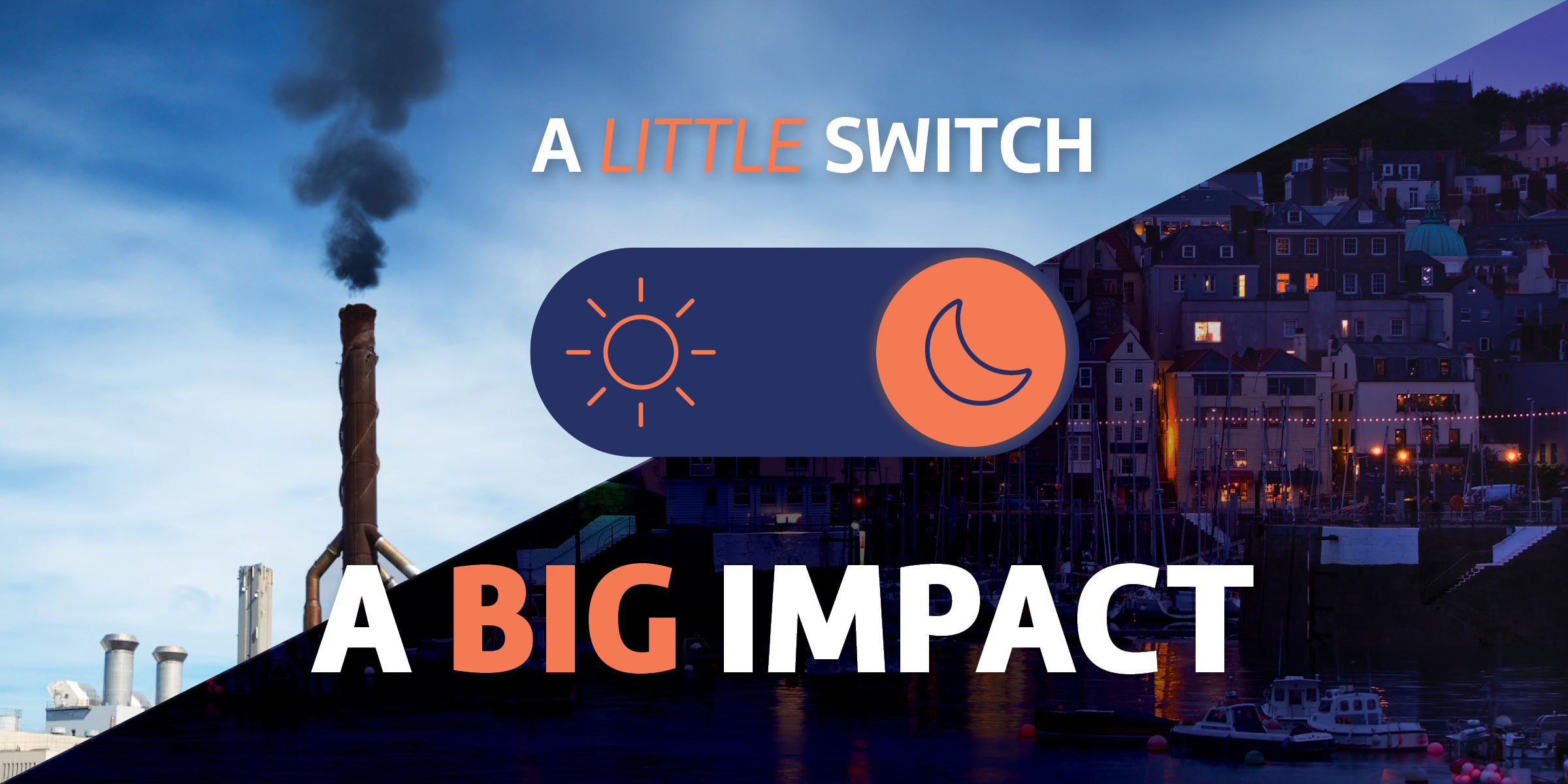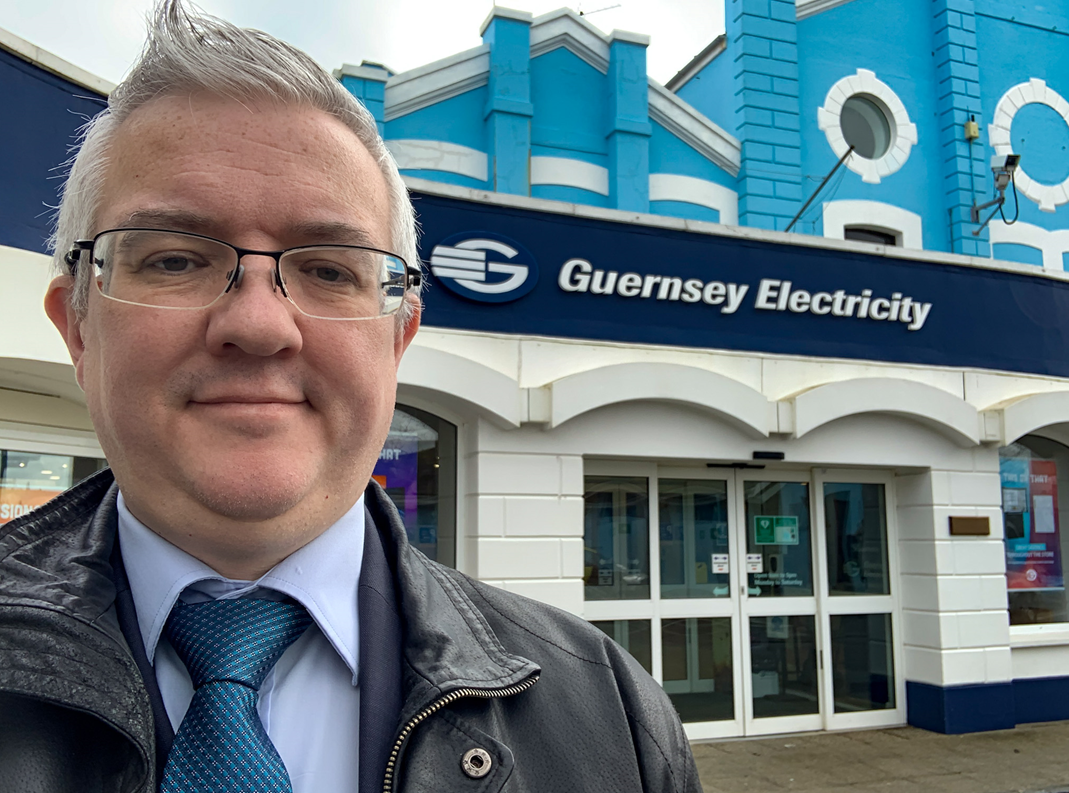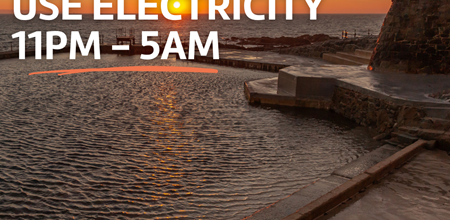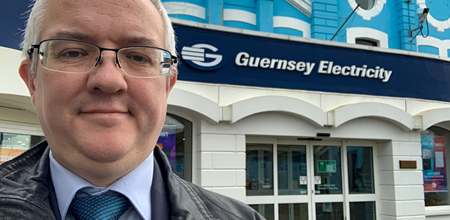What do AI, solar panels and your fridge have in common? As the foot soldiers in a quiet revolution taking place behind your walls, they’re changing the way we live, one smart decision at a time.
There’s a loop of innovation reshaping how we use electricity, often so seamlessly we barely notice it. But on an island with just 30,000 electricity customers, this can’t be a race to be first at any cost.
So, what’s happening behind the scenes, and how can we bring this energy revolution home? Gareth Wordingham, our Customer, Product and Innovation Lead at Guernsey Electricity, says we’re only scratching the surface of possibilities.
“We need to put customers first by using proven technology that benefits real life, at a pace that won’t push up costs or compromise reliability.
Smart systems, AI and home energy tech will all transform how we make, move and manage the force behind modern life, making it cleaner, cheaper and smarter. But it’s a journey that’ll have some tough problems to tackle.”
From hallucinations to helpful
The buzzword on everyone’s lips: AI. What can it do for an energy firm?
Like a child, it has huge potential but can still make mistakes. That’s why we’re teaching it how Guernsey’s electricity systems work and setting up guard rails to help stop it from hallucinating and generating poor responses.
“While AI might help us draft letters or emails very quickly, they’ll still need to be checked by a person.
We’re also looking at how AI and our software can join forces to unlock cheaper, cleaner power. For example, we’ve started exploring machine learning to spot patterns in standing order payments, and we’re testing a website assistant to help customers get answers quicker.
But what will really make life better for islanders? With so many cards on the table, the hard part is choosing which are worth backing.”
When the sun shines too bright
Your TV is no longer the only one doing the thinking. Smart heating, washing machines, even fridges can all be hooked up to an app and have in-built scheduling tools that stop you wasting cash and carbon on energy you don’t benefit from. But in any conversation about “energy-tech”, the topic quickly circles back around to solar power.
When around 90% of Guernsey’s electricity already comes from low-carbon sources in Europe, installing solar panels locally isn’t critical for a low carbon supply. There are more and more people installing solar on their roofs every week to ‘self-generate’, but it isn’t a perfect solution.
“Not everyone can have their own solar panels, and those who do catch the sun will still run into roadblocks. While Guernsey Electricity can pay islanders for excess solar energy, this costs more than importing renewable power from Europe.
Solar also adds pressure to the network. When excess solar energy 'spills’ onto the grid all at once, rather than released in a controlled way, the grid must work harder to stay balanced. This risks outages, extra costs, and limits how much solar energy the island can use safely.
In future, Energy Management Systems will tie everything together – from solar to batteries, electric vehicle charging to heating.”
Simplifying life
The real promise of innovation isn’t just churning out endless gadgets. It’s about helping people save money and enjoy an easier life.
“The next generation of smart meters, apps and online tools will give people a real-time view of costs and how much power they use. No more guesswork when the quarterly bill lands,” Gareth added. “The challenge is picking the right solution for Guernsey.”
“This knowledge is the real power source. Once you understand your habits, it’s easier to make small changes for big impact – separating the energy hogs from the appliances that happily leave your purse strings in peace.
Automation is another big win as a truly smart home will manage itself. Think pre-heating your home earlier using cheaper power, or shifting laundry to overnight eco-cycles. These quiet, behind-the-scenes tweaks cut costs and carbon without changing how you live.
Peering further over the horizon, like a satnav, smart technology will help Guernsey Electricity run systems more effectively. Despite TV’s and fridges getting bigger, better energy efficiency means you’ll reduce how much you use. But to decarbonise heating and transport further, the biggest challenge is making sure our grid and power station can handle a freezing winter’s evening when everyone is cooking, heating and watching TV all at once.
Without grid upgrades, we’ll get more power cuts and less people with clean electric heating. That’s why we’re investing in monitoring technology which, like a smart meter for the network, tracks where demand is rising to help proactively target upgrades, reduce disruptions, and save money.”
What about electricity tariffs?
You’ve probably seen the word ‘tariffs’ making global headlines lately. But here in Guernsey, we’re talking about how islanders pay to access a huge power system that connects all the way to the European grid.
Today, Guernsey Electricity set tariffs to reflect the actual cost of getting power to you. If it costs us more, that cost is passed on, and any profits reinvested into our electricity assets.
These are like a flat taxi fare - fixed rates that apply to everyone and don’t change much. But in the future, prices could be more dynamic, changing based on supply and demand and rewarding those who use electricity when there’s plenty available.
We’re already seeing this trend in Europe. For example, real-time tariffs reward customers who shift to cheaper, cleaner off-peak times. Prices drop when solar power floods the grid at lunchtime, then spike again during the evening rush hour. Whether this European model would work in Guernsey still needs exploring, but the principle is simple: if you’re flexible, you could save.
Plus, smart homes with batteries or heat stores could help save energy during colder, darker months.
What can I do?
If you want to wake up tomorrow and be sure your appliances use the cleanest, cheapest electricity available, set them to run between 11pm and 5am.
You’ll have skipped Guernsey’s busy ‘peak time’ and made the most of low-carbon power from Europe – all while embracing both time-delay and energy importation technology.
For anyone who loves tech, saving money, and helping the planet, it’s a little switch that has a big impact.

If you’d like to stay in the know with what’s happening today, why not sign up for our e-newsletter or follow us on social media.










